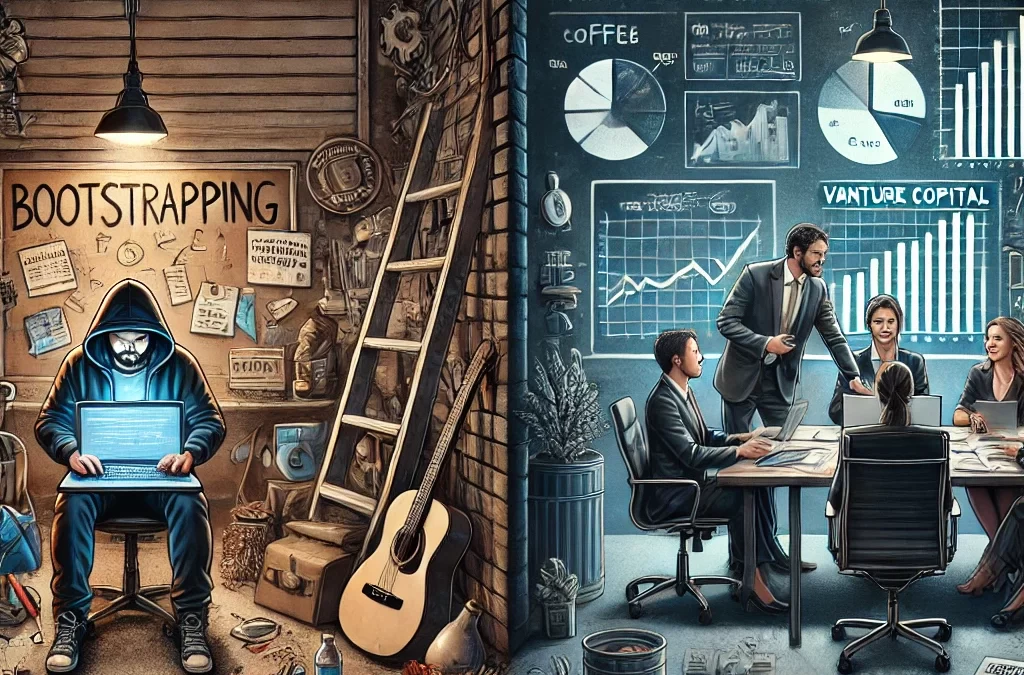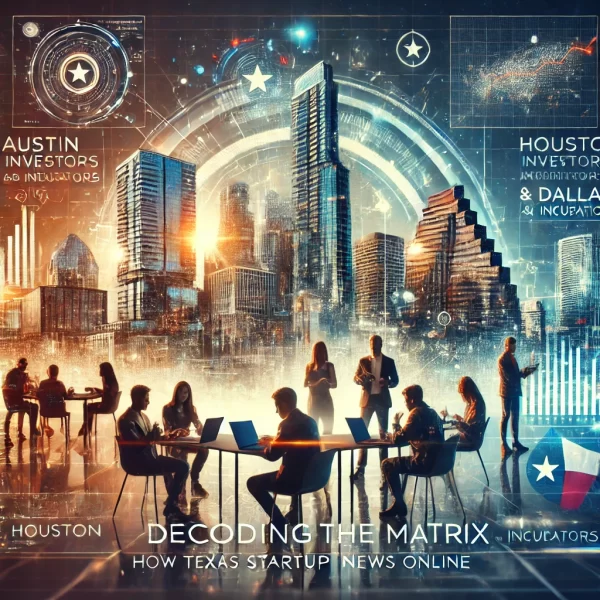As anticipated, Austin boasts the highest number of accelerators, with Capital Factory arguably representing the most prominent. Next week, we intend to conduct a comprehensive examination of Austin-based Capital Factory, which oversees an accelerator program, two investment funds, and a 60,000-square-foot shared workspace.
In this article, we will examine a selection of accelerators that are contributing to the enhancement of the Texas startup ecosystem through the provision of funding, workspace, educational resources, and mentoring.
The inaugural Techstars Austin program commenced in 2013. Since its inception, the accelerator has hosted six cohorts of approximately ten companies each, resulting in a total of 62 companies participating in the program. A further cohort is scheduled to commence in June, thus increasing the total number of participants to 72, according to Managing Director Amos Schwartzfarb. The program, which lasts for a period of three months, is open to companies from any geographical location. In order to participate, companies must relocate to Austin for the entirety of the program, during which they must “immerse themselves” in the local environment.
In regard to the criteria for selection, Schwartzfarb stated that TechStars is primarily interested in two key factors: the ability of the CEO to develop a meaningful business and the capacity to recruit and inspire a high-performing team. Secondly, it is essential that we are personally enthusiastic about the market.
TechStars provides startups with capital, a mentor network, and, more specifically, resources and guidance on the implementation of metrics-driven and focused strategies.
“It has proven to be a remarkably fruitful region,” Schwartzfarb observed.
DivInc is dedicated to enhancing diversity within the technology sector. The organization aims to facilitate the growth and expansion of tech startups founded by Black, Brown, and women entrepreneurs by equipping them with the essential resources they require to succeed.
DivInc, a nonprofit pre-accelerator, was co-founded by former Dell executive Preston James and Dana Callender. Its 12-week programs are designed for underrepresented tech founders. The inaugural cohort commenced in September 2016, comprising a group of founders that included three African-American men, two Latinos, one Caucasian female, and four Asian women.
Since its inception, DivInc has collaborated with 47 founders, who have initiated the establishment of 36 companies. Collectively, these companies have secured $1.9 million in funding and generated $994,000 in revenue. The accelerator is currently in its fourth 12-week program, which will conclude on June 22. Applications for the Fall 2018 program will be accepted beginning in June, with the program itself commencing on September 4.
Masschallenge Texas
MassChallenge Texas commenced operations in October 2017, utilizing the WeWork facility at 221 W. 6th St. as its base of operations.
“Our primary objective is to create a tangible impact, rather than focusing on equity. As a nonprofit organization, we do not retain any equity from the startups,” he stated via email. Additionally, this year the startups will compete for up to $500,000 in equity-free prizes.
A total of 84 companies were accepted into the MassChallenge cohort, which commenced on April 2 and will run for a period of four months. The organization receives applications from a multitude of geographical locations. In its inaugural round, the organization received over 500 applications from 32 countries and 29 states.
“We are not affiliated with any particular industry and seek startups with the potential for significant impact,” Millard stated. “We facilitate networking, mentoring, education, and resource provision for startups. The curriculum is an extension of the Business Model Canvas and includes sessions on key topics such as pitching, fundraising, sales and marketing, and leadership, as well as a range of other subjects requested by the startups.
Sputnik ATX
The Sputnix ATX is an accelerator that was launched on October 4, 2017, the 60th anniversary of the launch of the Soviet Union’s Sputnik satellite. This deliberate move was undertaken by the company’s co-founders, Oksana Malysheva and Joe Merrill.
Merrill observed that “Sputnik” is Russian for “partner,” which he found fitting for a company named after a revolutionary event. The goal of the company, he said, is to help technologists and makers take their products to market.
Sputnik ATX is seeking startup companies that have developed a minimum viable product and have at least one customer. The selected startups will be required to attend classes in Austin, where they will also have access to free office space, mentoring, and guidance on securing funding. Each selected startup is presented with a $100,000 investment in the form of a SAFE note. Early-stage companies, as opposed to those in the prototyping phase, that require assistance with product/service marketing and sales are encouraged to apply.
“If your company is still in the conceptualization stage, our services may not be the most suitable for you,” Malysheva stated.
Sputnik is focused on Texas, therefore, any participating companies must either be located within a 300-mile radius of Austin or be willing to relocate to within 300 miles of Austin. Subsequently, the startups engage in a 13-week program comprising a twice-weekly class of two hours’ duration.
The inaugural cohort of four companies commenced in January, with the demonstration day occurring on April 12. Sputnik ATX will only conduct two cohorts per year.
One of the companies, Pei Technology, has a waiting list of over 120,000 individuals, according to Merrill. The company relocated from Los Angeles to participate in the program, citing the opportunity as a significant factor in its decision.
The Station Houston
Meanwhile, in Houston, Station Houston commenced operations in March 2016 with a for-profit hub model, which is membership-based rather than equity-based, according to Co-founder and CEO John (JR) Reale. A sister company, Station Houston Ventures, has recently concluded its third investment and is currently engaged in negotiations for two additional transactions.
Photo Credit: Local 002
Station Houston primarily collaborates with nascent software enterprises, encompassing a membership base of over 200 entities, from the conceptualization stage to those that have secured Series A funding, as Reale elucidated.
A significant majority of the members, representing over 90 percent of the total, are based in Houston, with a notable proportion of them hailing from other countries.
The company was established by Reale, Blair Garrou (co-founder and managing director of Mercury Fund), Grace Rodriguez, and Emily Keeton, who currently serves as head of mergers and acquisitions for WeWork in New York.
On April 12, Station Houston announced its intention to relocate to a new planned Houston Innovation District in Midtown. Rice University, a world-renowned institution, is the sole equity partner of the innovation district and is investing up to $100 million in the project.
The Station Houston organization currently employs a staff of 13 individuals and engages the services of over 130 mentors. The companies under its umbrella have collectively secured in excess of $100 million in venture funding.
Station Houston has recently introduced a new membership program, offering distinct services such as account management to its members. Additionally, the organization is in the process of developing a more structured mentoring program.
Notable success stories include Graylog, which is currently in the process of closing a Series B round, and Arundo Analytics, which recently completed a $25 million Series A round.
“Our objective was to address the dearth of startup density in Houston,” Reale stated. “Each day presents a challenge, but we are making progress in achieving our objectives.” “I believe we are beginning to make a tangible impact.”
The TMC Innovation Institute was established in 2014. The vision was spearheaded by the TMC board of directors and guided by both its former CEO, Dr. Bobby Robbins, and its current CEO, William McKeon.
The objective of the institute is to facilitate the commercialization of products that provide benefits to patients.
The organization offers a customized curriculum designed to equip startups with the requisite skills or provide a comprehensive review of essential topics such as business fundamentals, financial management, regulatory compliance, patient and hospital engagement, and clinical trial implementation within a hospital setting. Additionally, the organization facilitates introductions between startups and clinicians, hospital stakeholders, and subject matter experts, who can assist in the testing and deployment of their products.
Companies invited to participate in TMC Innovation Institute programs typically have a functioning prototype for medical devices or digital health technologies, although the Institute accepts companies at all stages of product development.
Halvorsen noted that the organization has worked with companies at various stages of fundraising, from those that have secured $100,000 to those that have already raised $20 million. Additionally, discussions are held with hospital partners regarding unmet needs, with the objective of introducing new innovations that can assist in addressing these challenges.
Participation in the accelerator programs is free of charge, and TMC Innovation Institute does not take any equity in the companies. However, the organization has recently initiated the TMC Venture Fund, through which it will make select investments.
To date, over 150 companies have participated in the accelerator program. At present, the institute has over 50 companies based in its TMCx+ incubator and co-working space, in addition to those located in Johnson & Johnson Innovation’s JLABS @ TMC facility.
It should be noted that the aforementioned accelerators are not exclusive to Austin and Houston. Notable accelerators based in Dallas include RevTech, Tech Wildcatters, and Health Wildcatters. Additionally, San Antonio is home to RealCo, a long-term accelerator that invests in, incubates, and accelerates B2B tech startups.
Texas startups have a plethora of options when it comes to accelerators, as there are dozens more not listed here. It is hoped that these accelerators will continue to help companies that will enhance and enlarge the state’s startup ecosystem.
What's your reaction?
Excited
0
Happy
0
In Love
0
Not Sure
0
Silly
0







